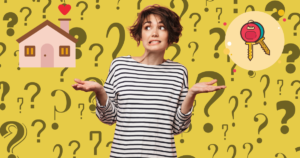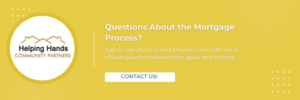
Frequently Asked Questions (FAQs) About Mortgages:
Applying for a mortgage can be a complex and confusing process, and it’s normal to have questions. To help you navigate the mortgage process, we’ve compiled a list of frequently asked questions (FAQs) and their answers:
- How much of a down payment do I need?
The amount of a down payment you need depends on the type of mortgage you are applying for. For a conventional mortgage, you will typically need a down payment of at least 3-5% of the home’s purchase price. For an FHA loan, the minimum down payment is 3.5%. However, for a VA or USDA loan, there is no down payment required.
- What is the difference between pre-approval and pre-qualification?
Pre-approval is a more formal process than pre-qualification. When you get pre-approved, a lender will evaluate your financial situation and provide you with an estimate of how much they are willing to lend you. On the other hand, pre-qualification is less formal and does not involve as much documentation. It can give you a rough idea of how much you might be able to borrow, but it is not a guarantee of approval.
- What is an adjustable-rate mortgage (ARM)?
An adjustable-rate mortgage (ARM) is a type of mortgage in which the interest rate can change over time. The interest rate is typically fixed for a certain period of time, after which it will adjust based on market conditions. ARMs can be a good option for borrowers who plan to sell their home or refinance before the interest rate adjusts.
- What is a fixed-rate mortgage?
A fixed-rate mortgage is a type of mortgage in which the interest rate remains the same for the life of the loan. This can provide borrowers with predictability and stability, but the interest rate may be higher than that of an adjustable-rate mortgage.
- How do I know which type of mortgage is right for me?
The type of mortgage that is right for you depends on your personal circumstances and financial goals. Consider factors such as your credit score, income, and the size of your down payment when deciding which type of mortgage is right for you. It’s also important to talk to your Helping Hands mortgage loan officer who can help you understand the pros and cons of different mortgage options.
- What is a mortgage rate lock? A mortgage rate lock is an agreement between a lender and a borrower that guarantees a specific interest rate for a certain period of time. This can be useful for rate-conscious borrowers who want to lock in a desired rate. It is also recommended in rate-increasing markets.
- What is mortgage insurance? Mortgage insurance is a type of insurance that lenders require borrowers to purchase if they are unable to make a large down payment. Mortgage insurance protects the lender in the event that the borrower defaults on the loan.
- What is a mortgage broker and what do they do?
A mortgage broker is a professional who acts as an intermediary between borrowers and lenders. They can help borrowers find the best mortgage products that match their needs and qualifications, and they can also help with the application process. A broker can also shop around to multiple lenders to find the best rates and terms for a borrower. Helping Hands is a mortgage broker. We have access to more products and options than your typical bank.
By understanding the answers to these frequently asked questions, you’ll be better equipped to navigate the mortgage process and find the right loan for you. Remember, the key is to be informed, ask questions and seek guidance from your expert loan officer from Helping Hands!


